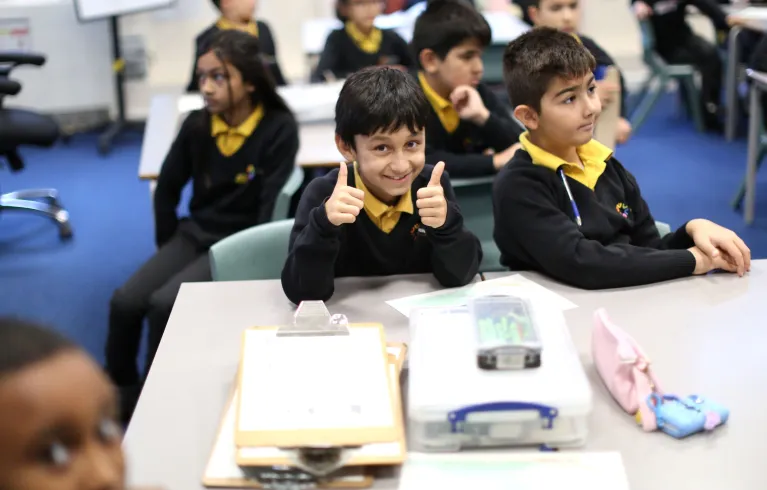
Key information
Publication type: General
Contents
3 sections
The programme
Children with speech, language and communication needs (SLCN) are at a higher risk of behavioural problems, poor mental health and poorer outcomes later in life.
- 81 per cent of children with behavioural disorders have unidentified speech, language and communication needs.
- Children with vocabulary difficulties at age 5 are twice as likely to be unemployed in adulthood.
- 60 per cent of young offenders have low language skills.
The VRU launched the Talk Matters programme in 2023, which supports speech, language and communication needs in primary school pupils.
The aim is to identify learning gaps for children with speech and language needs early, to ensure they get early and effective support. It will form a key part of the VRU's overarching policy work to champion and invest in inclusive practices in schools through London's Inclusion Charter.
Over three years, each Local Authority will work with 10 primary schools to develop and commission a locally specific approach to improving oracy. This includes:
- A whole-school strategy to develop the speech, language and communication of all pupils.
- Targeted support for pupils who need additional help.
- Initiatives to improve pupil wellbeing and parent/carer engagement.
By improving pupils’ oracy, we aim to improve their ability to communicate their needs, reduce the risk of poor behaviour and improve engagement in education, leading to improved educational outcomes.
Evaluation summary and methodology
The VRU have commissioned Ecorys to lead a mixed-methods process and outcome evaluation using a theory-based approach. This includes:
- developing theories of change for the VRU and seven local authorities
- tracking implementation and progress through surveys in up to 70 schools
- conducting in-depth case studies in 14 schools across two cohorts.
To assess programme effectiveness, the impact evaluation will use monitoring data, workforce and parent surveys, and school and pupil outcomes.
Additionally, a learning partnership will be established to support delivery and future rollout. This includes networking events, online workshops and development of a toolkit and videos to share best practices and insights.
Timeline
A final report and toolkit are expected to be delivered towards the end of 2026.